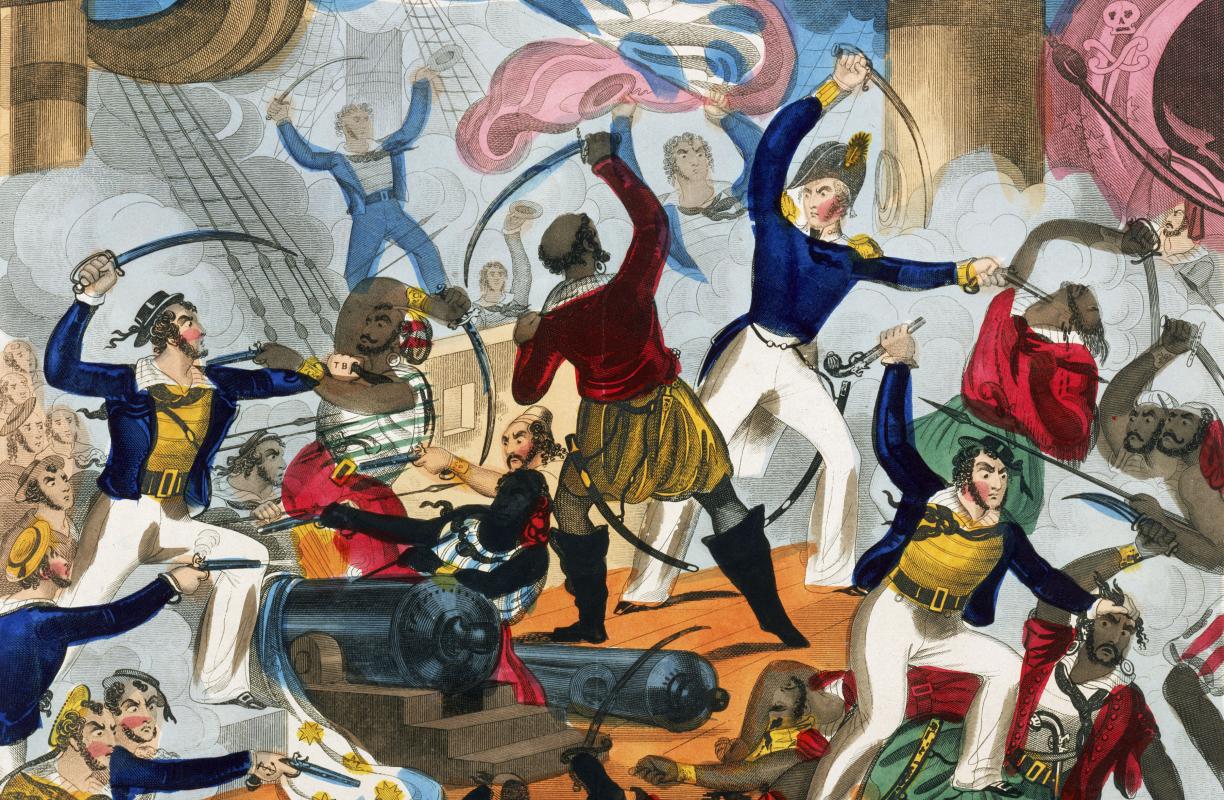Pirates of the…Mediterranean?

In response to my recent post on nineteenth century Chinese pirate Cheng I Sao, Margins reader Davide reminded me of another highly successful pirate* and then made the provocative comment that the subject of piracy in the Mediterranean is very interesting and often neglected by historians.
Challenge accepted. It’s a big question, but let’s take a quick look:
Piracy was a problem in the Mediterranean as early as ancient Egypt** and remained a problem for the next thousand years. By 67 BCE, pirates were such a threat to Roman navigation and commerce that the Roman senate sent Caesar’s ally and rival Pompey to find a solution to the problem. They agreed to provide him with up to 500 ships for up to three years. Pompey divided the Mediterranean into thirteen zones, which he systematically cleared of pirates over the course of three months using fifty warships and fifty transports. (He also used the war against the pirates as the jumping off point for Roman expansion into Syria and Palestine–but that’s another story.)
Pompey reduced piracy to a low grade irritant during the lifetime of the empire, but it picked up again during the Middle Ages when there was no central power strong enough to patrol the seas. Muslim and Christian corsairs alike attacked merchant vessels and sold captives as slaves–sometimes in the name of religion, sometimes because they could. (There is of course, always a question of whether a ship was a pirate or a legitimate warship of a hostile power: both sides were quick to point fingers and say “pirate”.)
The “golden age” of Mediterranean piracy dates from the sixteenth through the eighteenth centuries when the Barbary corsairs (and their European counterparts, the Knights Hospitallers) terrorized the waves. Just as Elizabeth I of England used licensed privateers as an economical way to fund her lifelong battle against Spain , the Ottomans co-opted the corsairs of Algiers and Tunis as a way to strengthen their navy and expand their influence westward.
The Barbary corsairs were finally repressed in the early nineteenth century, but piracy remains a problem today on a smaller scale, as a quick Google search will reveal.
Anyone have something they’d like to add?
* Barbarossa (Redbeard), a sixteenth century Barbary corsair who worked his way up from pirate to emir of Algiers (1519) and eventually grand admiral of the Ottoman fleet (1533). A successful pirate by any standard and worth a blog post in his own right. Coming soon to a history blog near you.
**At least that’s our first documented reference to piracy. An Egyptian document from 1075 BCE describes the voyages of an Egyptian emissary from Karnak who narrowly escaped an attack by pirates from the Phoenician city of Dor, located in modern Israel. In fact, pirates probably existed from the moment that humans tried to ship valuables by water.





So, sometimes I’m useful… I’d like to add the Barbary Pirates are important in US history, since the first war waged by USA was indeed against these pirates. The first barbary war (1801-1805) saw for the first time the american flag raised on foreign soil and one of the first use of marines (which is also recorded in their hymn with the line “the shores of Tripoli”).
I already have the “shores of Tripoli” on my editorial calendar for a post in the near future. It’s a complicated story, with some sobering parallels with the current day.